Hijab is an Arabic word meaning barrier or partition. In Islam, it is not only interpreted in its literal meaning, but exemplifies the principle of modesty, which includes both behavior and dress for males and females. The most visible form of hijab is the head covering worn by many Muslim women in public.
Some take pride in expressing their faith and identity. Others wear it for modesty. However misunderstandings of the hijab results in Islamophobic stereotypes and acts of violence. We asked female Muslim students about what the hijab means to them and their experience wearing it.
Senior Fariha Hossain
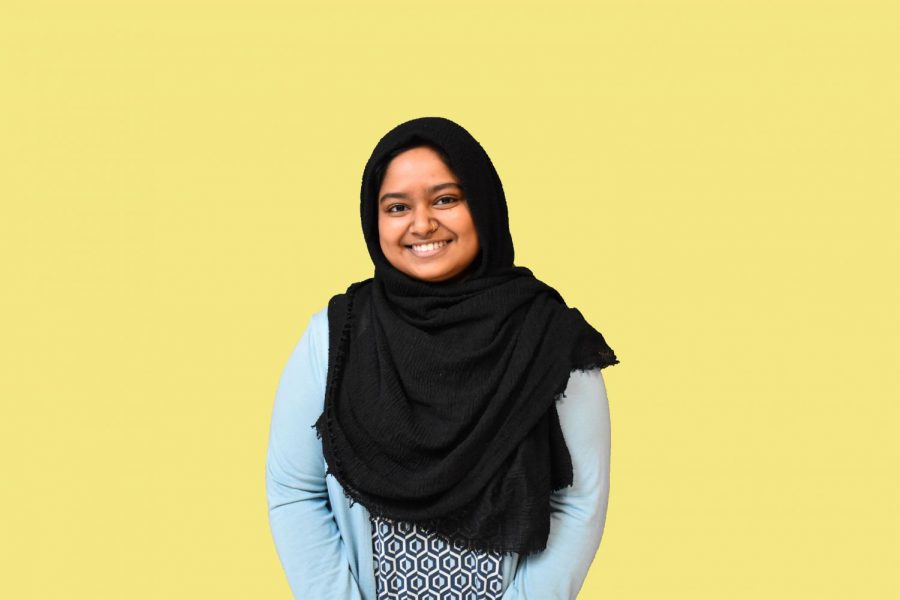
When did you start wearing the hijab?
“I started wearing [the hijab] the summer before freshman year.”
Why did you start wearing the hijab?
“[I wore the hijab] because the Muslim [travel] ban [was] coming and I [thought] this [was] going be my chance. It was a silent protest. I was going to start wearing Hijab; watch me Donald Trump.”
What does hijab mean to you?
“I feel [that] it demands respect from people, and obviously you’re not always going to get the respect from everyone. Hijab doesn’t define me, but it’s also a very huge part of my definition. It’s important, but it’s not overtaking. Hijab makes me feel more safe; [it is] a guard from sexual harassment and makes me feel secure in my religion.”
Have you noticed that people treat you differently with the hijab?
“I haven’t had any real prejudiced experiences other than people looking at me weird all the time, but that’s something [I got] used to and don’t notice as much. When I started wearing the hijab, my friend group [was] really accepting. It was personally important that my friends accepted me and my hijab because I didn’t want to feel alienated and uncomfortable in school. It makes me comfortable and feel safer as a Muslim in America to know that [my friends] are accepting.”
What is one thing you wish people understood better about the hijab?
“Even with the hijab, I’m the same person I was without it. There’s a whole bunch of different types of hijabis [women who wear hijab] out there. You could look at hijabis from the same culture, the same background and the same language, but their personality is going to be different. It is important to recognize differences in hijabis because putting us all in one category strips us of [our] humanity and personality. It forms stereotypes and tries to alienate us. In order for one to be inclusive of Muslims and hijabis, it is important to first accept us as humans and people. This helps fight the stereotypes and islamophobia in American society and many areas of the world.”
Sophomore Shurooq Saleh
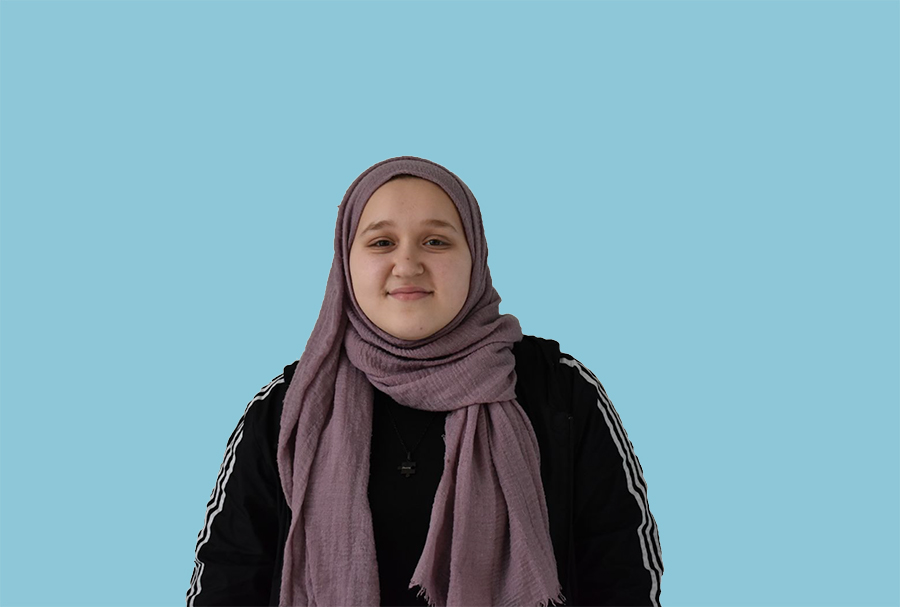
When did you start wearing the hijab?
“I started wearing the hijab in the sixth grade.”
Why did you start wearing the hijab?
“I wore it because most of the people around me were wearing it, especially my older sister, [and they] really encouraged me. Also, it was respected a lot where I live [because] it means I am following my religion and respecting it. I just wanted to be a better Muslim.”
What does hijab mean to you?
“Since I have been wearing the hijab, it feels a part of me. It means being modest and [having] a good character. It is something that defines my personality. Whenever I wear my hijab, it makes me confident and also more cautious about what I say and of my [behavior].”
Have you noticed that people treat you differently with the hijab?
“If I make comments and I’m wearing the hijab, then [people] always must be thinking that she’s disrespectful and that I’m putting a negative [perception] on Muslims. I will not get treated the same. That’s always in the back of my mind, even in random situations.”
What is one thing you wish people understood better about the hijab?
“[I wish people understood] that we wear it because we’re trying to be modest, and there’s a lot of benefits to wearing it. People think that once you wear the hijab, it stops you from accomplishing a lot of things when it really doesn’t. There’s people who wear hijab that play sports. People who wear the hijab [that]are businesswomen, lawyers. Hijab doesn’t slow you down.”
Junior Fatima Shahab
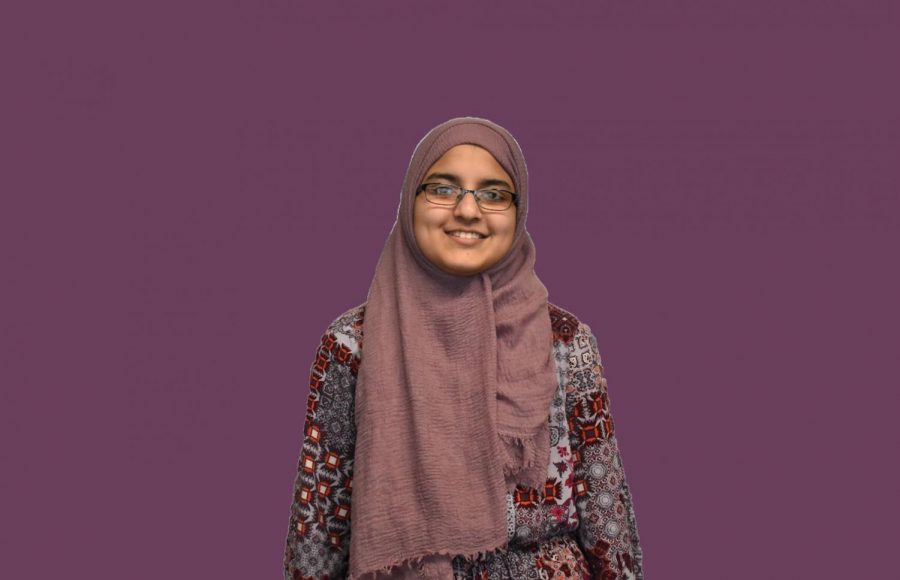
When did you start wearing the hijab?
“I started wearing it my freshman year of high school.”
Why did you start wearing the hijab?
“I had it in mind [to wear the hijab]. I thought that starting high school is like a new chapter and would be a good time to start wearing it. I just thought that it was the right time. I felt [that] I wanted to at that point. So on the first day of school, I thought I would feel out of place, but it [was] actually really nice. I think it was a lot easier because my friend also started with me. e stuck together the first day to support each other.”
What does hijab mean to you?
“I definitely think [hijab is] something that shows who you are as a person. [Hijab] plays a role in helping you become more religiously inclined and more connected to [God]. Wearing the hijab has motivated me even more to act in the best way I can as well as the principals that God has taught us. Through [hijab], I have been able to have a more personal connection to God and Islam as a whole.”
Have you noticed that people treat you differently with the hijab?
“I think because there’s so many people in the West wearing hijab, it’s a lot easier for others to get used to.”
What is one thing you wish people understood better about the hijab?
“I think a lot of people have in mind that if you wear the hijab, [you] are oppressed because of that. People [need] to understand that it’s a choice. It’s not like we’re forced to wear it. It’s a choice and it represents a lot of different things to different people, whether it’s modesty or the characteristics you’re supposed to uphold as a Muslim. There are a lot of Muslims here and people [should] accept who we are.”
Senior Seherzada Klincevic
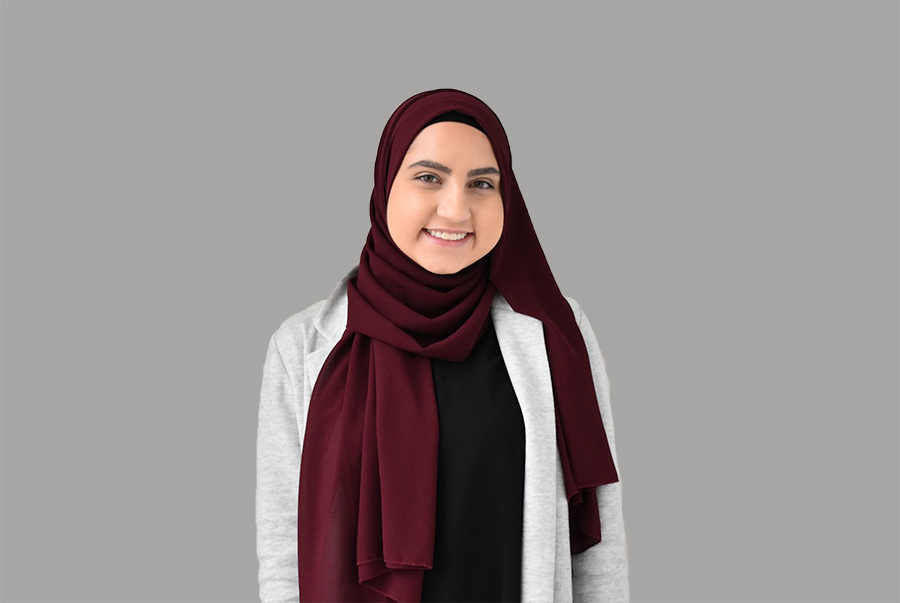
When did you start wearing the hijab?
“[I started wearing the hijab in] middle school.”
Why did you start wearing the hijab?
“My mom always wore [it], and growing up, [she] was my role model. [She] and everyone that I looked up to in the community wear it so I want[ed] to be like them. The main reason I did it was because it’s a way of identifying yourself as a Muslim. As I’ve gotten older, it’s been more of an empowering thing, mainly because modesty is looked down upon, but for me it’s [not].”
What does hijab mean to you?
“It has to do with the way you act and portray yourself. In Islam, the way it’s seen is both modesty on the outside and on the inside, the way you interact with people [and] the respect you give to others.”
Have you noticed that people treat you differently with the hijab?
“I remember during sophomore year in English class, this girl [would tell me] repeatedly throughout the semester, ‘oh, I’m going to expose you’ and would make gestures of wanting to pull my scarf off my head. I know I’m not alone; I know a lot of people have had similar things, or even worse [experiences].”
What is one thing you wish people understood better about the hijab?
“Something that bothers me a lot is the perception people have that [wearing the hijab is] forced upon me. It’s not forced, it’s my choice to wear it, and that it’s more than just a cloth on your head. There’s a lot more to it. If you look at the actual teachings, it’s seen as an empowerment. I don’t think anybody should be forced to wear [the hijab]. For me, being Muslim is more [of] how you act, and if you choose to or not, that’s your choice.”
Sophomore Salam Hadji
When did you start wearing the hijab?
“I started wearing it in fifth grade.”
Why did you start wearing the hijab?
“I was just looking around at guys and they would always look at girls in such a weird way. I didn’t want to be one of those girls who’s always viewed as [an] object. I want to be one of those girls who’s viewed more on their personality and their intellect and how hardworking they are, so I started wearing it in fifth grade because I was like, ‘I’m so done.’”
What does hijab mean to you?
“It means protection in a sense. It means I’m able to maintain some sort of privacy from everyone else. So I feel [that] I can maintain my identity and I can also maintain my culture.”
Have you noticed that people treat you differently with the hijab?
“Yes, I have been put in a situation where people have treated me as if I’m second class or as if I’m not American just because I’m wearing the hijab, and it’s frustrating.”
What is one thing you wish people understood better about the hijab?
“I wish that non-Muslims would recognize that it’s for modesty, it’s not for violence [and] it’s not for hiding ourselves. It’s our choice. [People] are so used to women objectifying themselves and trying to please the society that they reside in, so when they see somebody who’s not necessarily showing their hair or their arms or wearing short clothes, they see that as if they’re forced to do it. But there’s an empowerment in wearing what you want to wear and I hope people can see that.”

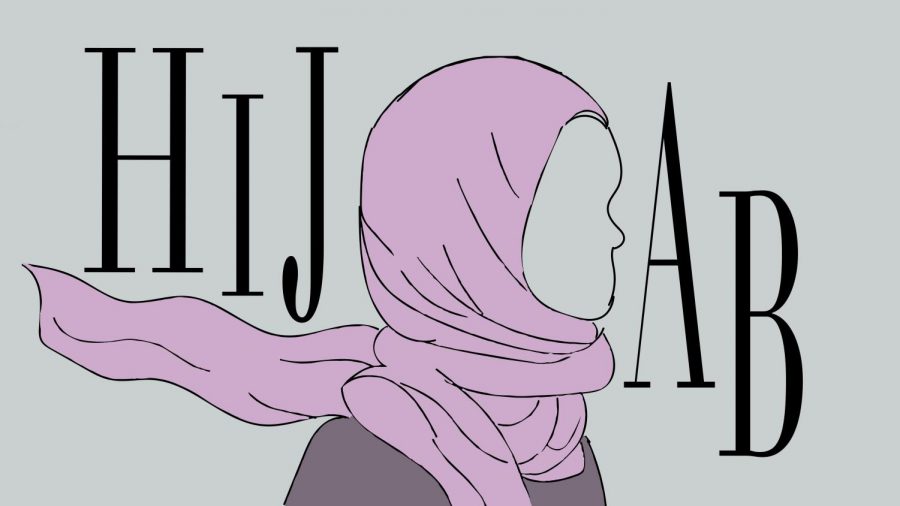




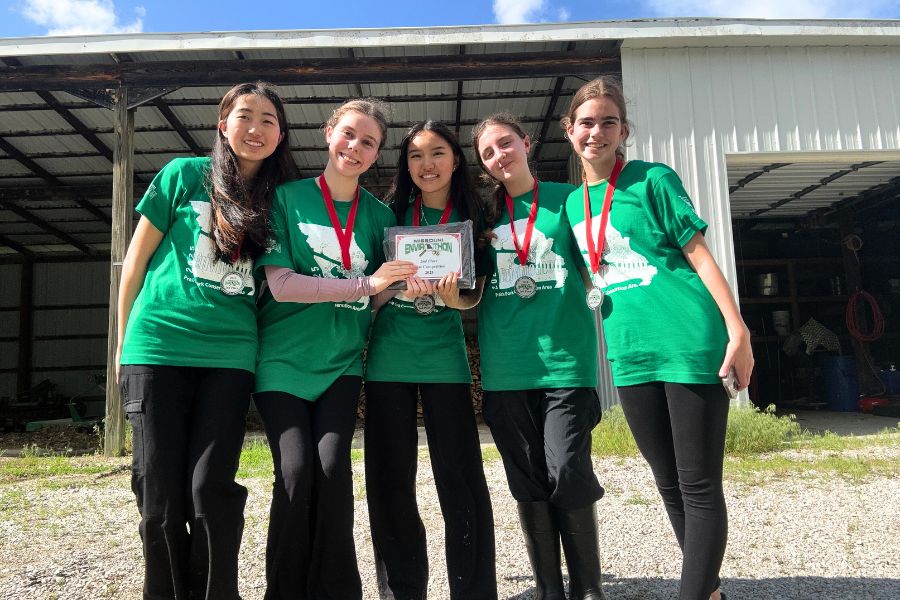
![Senior Adam Zerega stands with senior Dexter Brooks by farm equipment. Zerega often worked with friends and family on his farm. “I've been able to go to my family's farm since I was born. I [spend] at least three weekends a month [on the farm], so I'm there all the time,” Zerega said.](https://pwestpathfinder.com/wp-content/uploads/2025/04/IMG_4872-1200x900.jpg)
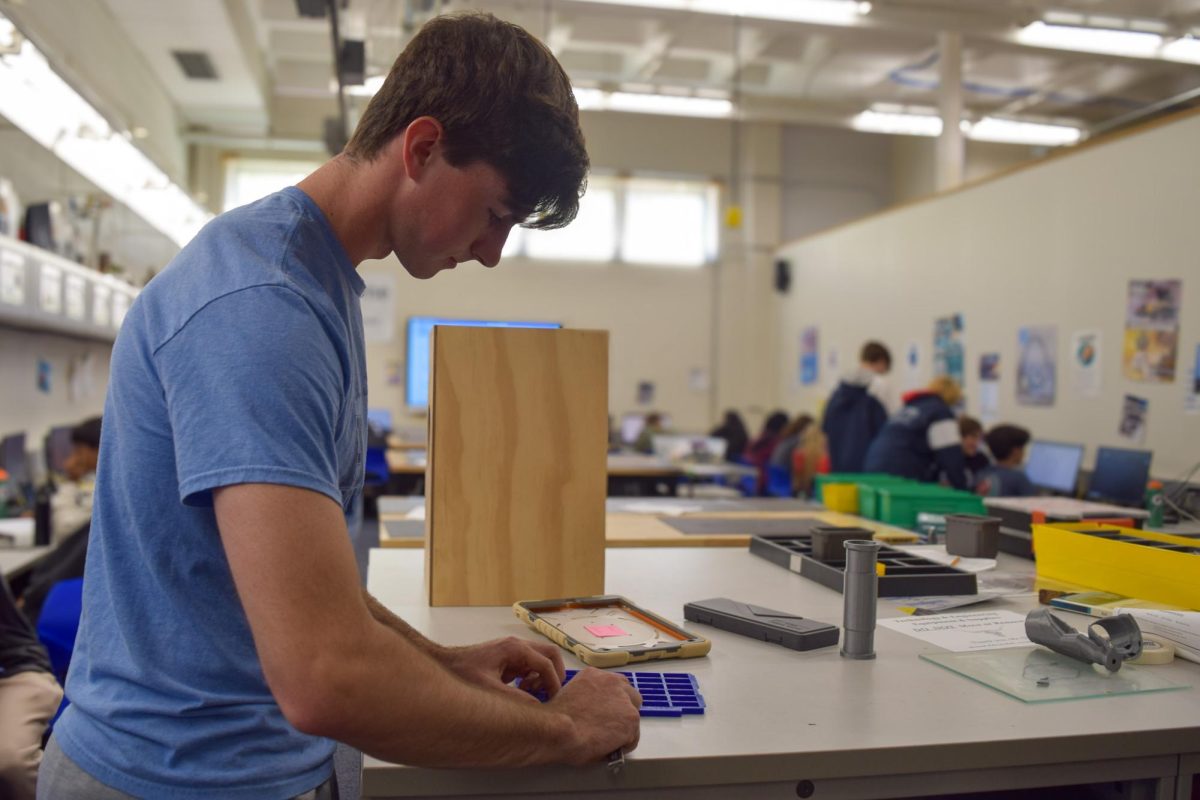
![Phage grown by senior Rio Naghibi Harat sit in petri dishes. Through Webster University, Naghibi Harat was given the opportunity to develop phage as a potential remedy for tuberculosis. “Phage are everywhere. I got mine from a soil sample. I'm not kidding; I picked [it] up from dirt. They're harmless, unless you code them to do something, and they can evolve. Virus antibiotics can't. They're one solid molecule. A strain of this bacteria [can evolve] that is resistant to [a] particular drug, [but] phage will evolve with the bacteria. They can see the changes, and they can be the change,” Naghibi Harat said.](https://pwestpathfinder.com/wp-content/uploads/2025/04/Flag-2.png)
![Hosting a meeting for Women’s History Month, co-president Bethany Liao converses with club members of Women in Healthcare. The event fostered discussions about women in medicine and included a third year medical student from Bosnia as a guest speaker. “Creating this club has been a net positive experience for everyone. After we present [or a guest speaker], we [also] usually have snacks for everyone and it gives people an opportunity to generally talk or discuss,” Liao said.](https://pwestpathfinder.com/wp-content/uploads/2025/04/DSC0032-1-1200x800.jpg)
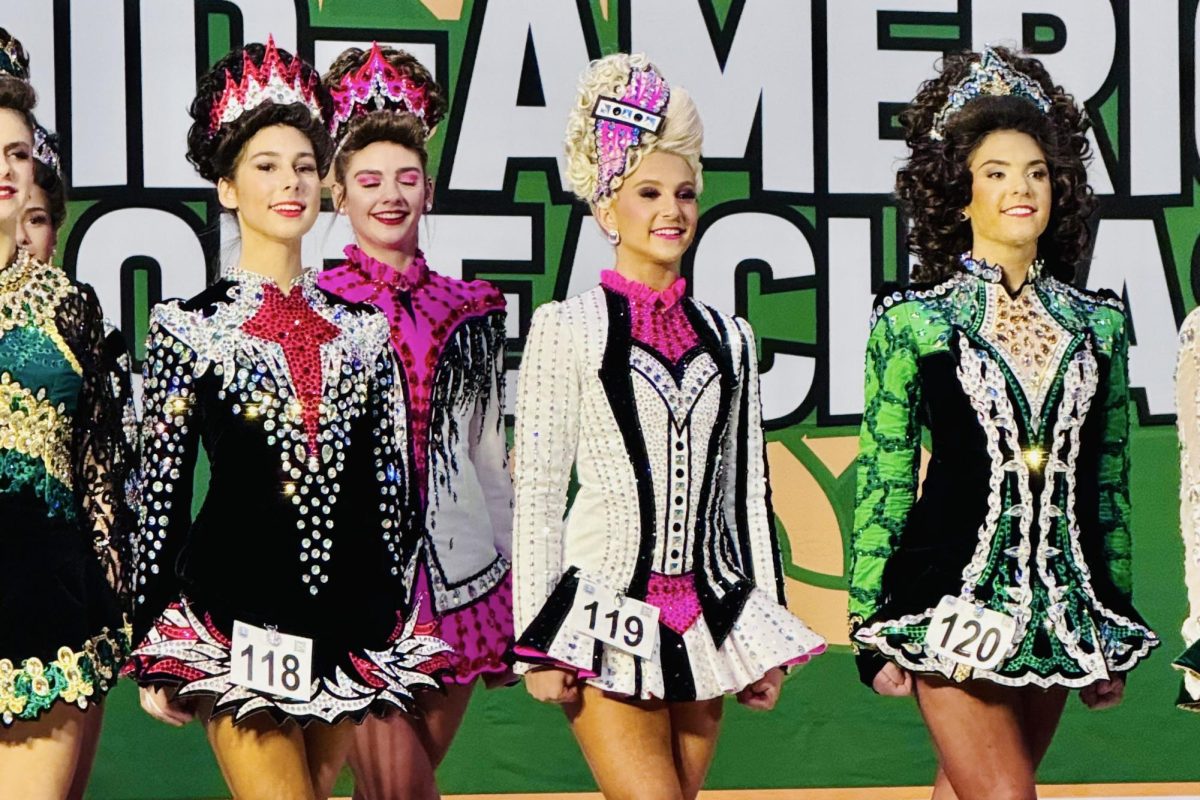
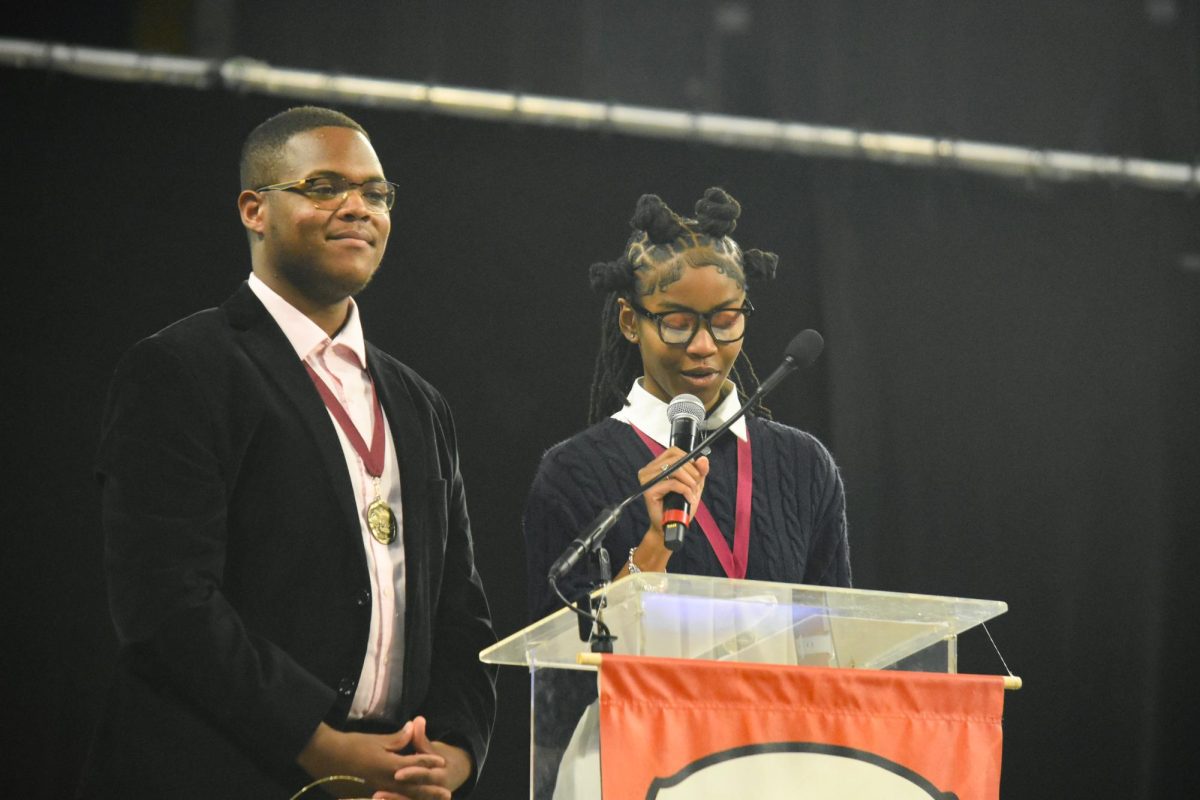
![Scrolling on eBay, sophomore Ryder Williams searches the app for different shoe styles. Williams credits the impact his completion of business and finance courses have had to gain his financial success, as well as his Personal Finance teacher, Andy Croley. “Croley helped me a lot in getting to know more about profit and where to put the money. [He] also [taught me] how to store my money, ways to invest it [and] that I should always have emergency funds,” Williams said.](https://pwestpathfinder.com/wp-content/uploads/2025/02/ryder-fea-3-1200x800.jpg)


![Junior Fiona Dye lifts weights in Strength and Conditioning. Now that the Trump administration has instituted policies such as AI deregulation, tariffs and university funding freezes, women may have to work twice as hard to get half as far. "[Trump] wants America to be more divided; he wants to inspire hatred in people,” feminist club member and junior Clara Lazarini said.](https://pwestpathfinder.com/wp-content/uploads/2025/05/Flag.png)
![As the Trump administration cracks down on immigration, it scapegoats many immigrants for the United States’ plights, precipitating a possible genocide. Sophomore Annabella Whiteley moved from the United Kingdom when she was eight. “It’s pretty scary because I’m on a visa. When my visa expires next year, I’m not sure what’s going to happen, especially with [immigration] policies up in the air, so it is a concern for my family,” Whiteley said.](https://pwestpathfinder.com/wp-content/uploads/2025/05/DSC_0077-7copy.jpg)
![Shifting global trade, President Donald Trump’s tariffs are raising concerns about economic stability for the U.S. and other countries alike. “[The tariffs are] going to pose a distinct challenge to the U.S. economy and a challenge to the global economy on the whole because it's going to greatly upset who trades with who and where resources and products are going to come from,” social studies teacher Melvin Trotier said.](https://pwestpathfinder.com/wp-content/uploads/2025/05/MDB_3456-1200x800.jpg)

![Pitching the ball on Apr. 14, senior Henry Wild and his team play against Belleville East. Wild was named scholar athlete of the year by St. Louis Post-Dispatch after maintaining a high cumulative GPA and staying involved with athletics for all of high school. “It’s an amazing honor. I feel very blessed to have the opportunity to represent my school [and] what [it] stands for,” Wild said.](https://pwestpathfinder.com/wp-content/uploads/2025/05/unnamed-6-1200x714.jpg)
![Red, white and blue, the American flag holds the values of our democracy. The fight that we once endured has returned, as student journalists and senior correspondents across the country are losing their voices due to government control. “[Are] the White House and [the] government limiting free speech [and] freedom of the press? Yes [they are],” chief communications officer of the Parkway School District and former journalist Elisa Tomich said.](https://pwestpathfinder.com/wp-content/uploads/2025/03/Untitled-design-14.jpg)
![Freezing in their position, the Addams Family cast hits the “rigor mortis” pose after cast member and senior Jack Mullen, in character as Gomez Addams, calls out the stiff death move. For the past four months, the combined company of cast members, orchestra pit, crew and directors all worked to create the familial chemistry of the show. “I’m excited for [the audience] to see the numbers, the music, the scenes, but I also just love all the technical aspects of it. The whole spectacle, the costumes, makeup and the people that put in the work backstage in order to make the show successful on stage. I’m excited for people to see and appreciate that,” Mullen said.](https://pwestpathfinder.com/wp-content/uploads/2025/03/DSC0116-1200x800.jpg)
![A board in the Parkway West counseling department displays pennants of selective universities. With a wide range of students interested in attending, it’s important that these schools have clear priorities when deciding who to admit. “[Washington University] had the major that I wanted, psychology, philosophy, neuroscience. That's a holistic study of the brain, and [WashU is] the only college in the world that offers that. That's the main reason I wanted to go; I got into that program,” senior Dima Layth said.](https://pwestpathfinder.com/wp-content/uploads/2025/02/Flag-1.png)
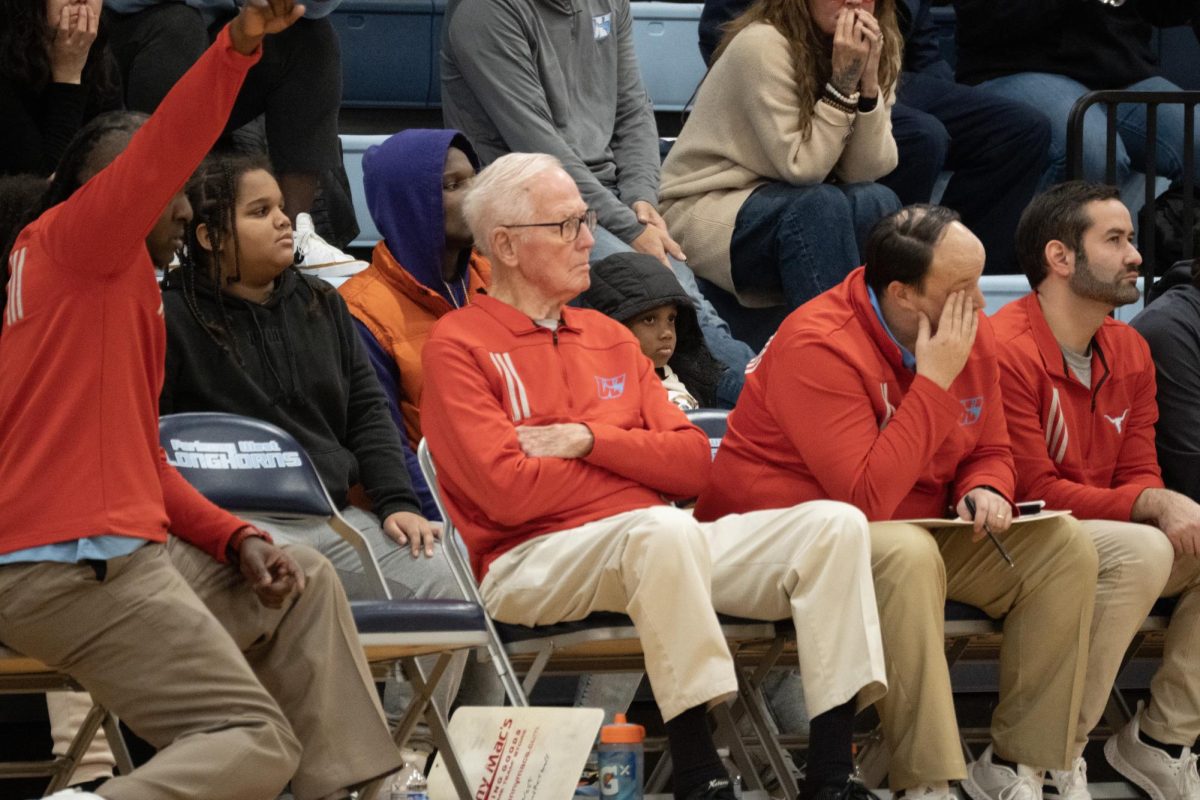
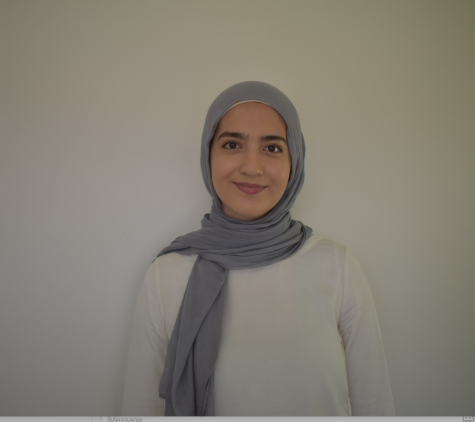
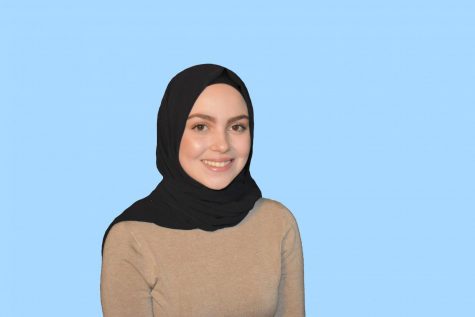
Alina Dunder • Feb 13, 2020 at 11:41 pm
YES, MY GIRL ZADAH! I think the coolest thing about being able to wear a hijab too is being able to accessorize your culture as well as trying out different types of styles! Choice or not, a hijab doesn’t limit you, and these students certainly prove us of that. Represent!
https://royalros.com/ • Feb 8, 2024 at 8:31 am
true hijab don’t limited your style.❤️
Dr. Charlotte V. Ijei, L.P.C. • Feb 13, 2020 at 10:14 am
I am so happy to see and read this article. Students who appear as “different” because of language, physical ability, religion, sexual orientation, their choice of clothing, the color of their skin, etc., etc., are thought to be “outside the cultural norm” because whiteness continues to be thought of as the “norm.” When we look at the world in general, whiteness is not the norm. It is an extremely diverse world where there is room for everyone.
These stereotypes tend to foster bullying and hatred toward those who are not like the “perceived” norm. There is nothing more beautiful than a young lady or woman wearing a hijab to respect and honor their religion. Differences are wonderful and they should not have a value placed on them, such as, different good or different bad. We are a tapestry that make up all different people and that is what makes America great. Thank you for sharing. I learned something new as well.